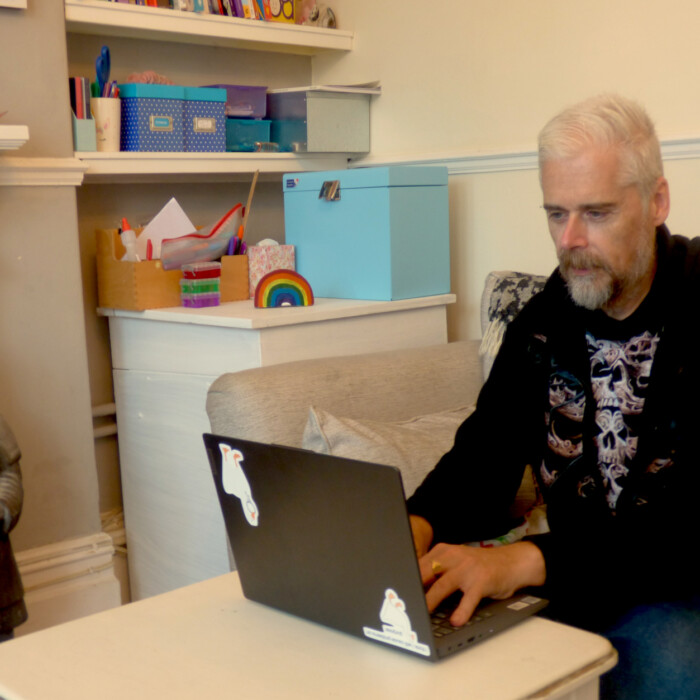Characters in Fiction are a game changer. Writing is never easy, and it can take years to craft a novel. You also have to set a proper schedule, keep yourself focused, and daily inspirations are a huge help. Being a good writer involves allowing your reader to take charge Evolving as a writer involves the understanding that there is a barrier in your story between you and the reader. You create the pictures in your head, and then you use words to describe them. The words are then read by the reader, and the pictures form … but the pictures…...
Sign in with Google to continue reading
💬 Meet Our Members

Sindhu Gopalkrishnan
I love writing as I get to create something beautiful and touch…

Antonius Bakker
Antonius "Ton" Bakker, born May 23, 1961, in the Netherlands, is a…

Dr. B.H.S Thimmappa
B.H.S. Thimmappa is a seasoned chemistry professional with extensive experience in developing…

Carl Scharwath
Carl Scharwath, has appeared globally with 210+ publications selecting his writing or…

Julia Orozco
Poet who love nature and writing poetry.
Tamizh Ponni VP
Tamizh Ponni VP is an ambivert who loves to express her skills…
Support independent journalism. Your membership keeps us going.
Characters in Fiction are a game changer. Writing is never easy, and it can take years to craft a novel. You also have to set a proper schedule, keep yourself focused, and daily inspirations are a huge help.
Being a good writer involves allowing your reader to take charge
Evolving as a writer involves the understanding that there is a barrier in your story between you and the reader. You create the pictures in your head, and then you use words to describe them. The words are then read by the reader, and the pictures form … but the pictures in their heads are going to be completely different to the pictures in yours, no matter how adequately you describe what is happening to your characters.
The best writers are those who understand this, and do not insist that the pictures in both heads should be identical. Who knows how many versions of Harry Potter there were before Daniel Radcliffe portrayed him in film, or Frodo Baggins before Elijah Wood, or Anton Chigurh before Javier Bardem? A good writer lets go and allows their readers to create their own pictures.
So, a good writer concentrates on breaking down the barrier that every reader faces – getting the words into their heads effortlessly so that their pictures can be created. The more barriers you put up – clunky, cliché-riche prose, flowery, pseudo-intellectual language, intrinsically detailed descriptions – the harder it becomes for the readers. The best writers know how to let go and allow their readers to take charge.
My secret to writing is to fall in love with my characters
If you write a book with a fantastic, twisting plot that keeps people guessing from one page to the next, but the characters in that plot are nothing more than uninteresting archetypes, then no matter how good your plot is, your book will fail.
In real life, people enjoy creating and maintaining emotional bonds with others, and the same should be true in fiction. People must like, love, admire, connect with or be in awe of your characters in order for them to form that crucial bond. It doesn’t matter if halfway through your book you sentence your most important character to a firing squad death; if your reader has not engaged with them, they will simply shrug their shoulders and mutter ‘so what?’
That’s why I make sure I fall in love with the characters I create. None of them are perfect, and indeed all will have flaws such as selfishness, a quick temper or the need to always be right. But real people have flaws too, and just like the flaws of our friends we forgive them as the relationship we have with them is too strong for such flaws to break it.
Early mornings and late evenings are my time to shine
I am actually a full-time writer, but as much as I would love it to, my fiction does not pay me enough to pay all my bills! I’m a single man with no family and I own my own home, and I like to live frugally. For example, not only do I not own a flashy car, I do not own a car at all.
Therefore, I supplement the income I get from my fiction by copywriting and ghost writing. I have actually lost track of the number of books I have had published. It must be over twenty now, over the course of the last thirty years.
- Read another writer, Stephanie Parent, and her thoughts on writing and crafting a novel.
I have one rule for writing – work in the morning, pleasure in the evening. If I have writing that I have to do rather than writing than what I want to do, I start it as soon as I get up so that I can get it out of the way, and out of my head.
For the writing I love to do, it’s the evenings for me. Evenings are peaceful and I am in control of them.
If you want to be a footballer, play football. If you want to be a writer, write.
Some writers (especially young writers) contact me and explain how they find writing exasperating. They seem to think that their finished, polished novel has to spill from their pen the moment they set pen to paper or rather, fingers to keyboard.
But that’s not how writing works at all, and if that is how you write, then you are not becoming a better writer. Your first draught of any piece of writing does not matter. It is simply a framework, or a suggestion to what your finished piece, short story or novel will be.
The first version of any piece of writing is all about plot. Just write down what is happening and do not worry about anything else. At first, your characters will do what you tell them to do, because they are not yet formed enough to have opinions for themselves.
Once you’ve completed that first draught, print it out then open a new document. You now have your framework, and subsequent draughts are about your characters. They will come alive, and they may not do what you want them to do or say the things that you want them to say. Once you encounter your first non-cooperative character, you know you are on the correct path.
Writing is like being repeatedly punched in the face, and then given a kiss. The most characters in fiction do.
There should be no doubt in anyone’s mind as to what is the most difficult aspect of writing, and that is getting readers. Writing without readers is like playing music that nobody hears or cooking a fine meal that nobody eats. I write because I want to be read, and I write because I want some people to meet the characters I have created; characters who deserve to exist beyond the confines of my skull.
But getting readers is easier said than done. Imagine how many manuscripts lie on computer or laptops unread and therefore unloved? There’s the chance that the greatest novel ever written is one that will never be read.
The publishing world is one about making money, and agents and publishers are the steely-eyed gatekeepers. It’s an impossible nut to crack, or so it seems, but people still get books published.
Keeping going at times seems pointless, especially when those rejection emails begin to pile up. I keep going because it would seem completely alien for me not to do so. My head is full of stories. Some of them deserve to be told, and some of those deserve to be read.
Hikariuchuu: The Realm of the Lights took me eleven years to write

I had the idea for Hikariuchuu: The Realm of the Lights in 2010. I wrote the final word of the final chapter of the final revision in 2019. It was published in 2021.
It’s been a long journey, sometimes across raging seas filled with Lovecraftian beasts, sometimes across sweet-smelling meadows accompanied by my favourite people, but it’s a journey I would do all over again if I had to. Expanding a simple, one-note idea into a 135,000-word YA fantasy novel is an achievement I take a sense of pride in.
The protagonist, Adam, will always be my favourite character even though many of my readers have said they find him unlikeable. I do not like ‘goody two shoes’ characters who seem not to have a single negative thought in their heads – nobody is like that. Adam can be moody, self-centred, immature, and cowardly, but are we all not guilty of that in some degree? If such traits are our central ones, then that becomes a problem, but if we work so our positive traits eclipse our negative ones, then we deserve to be liked, respected, and perhaps even loved, and that describes Adam perfectly.
I also like Jamie. He’s the me I’d be if I could let my guard down all the time.
My favorite quote
First, find out what your hero wants, then just follow him.
Ray Bradbury.
This, to me, outlines perfectly how I write. I have an idea, and there is usually a goal involved. I set my hero off to try and achieve that goal. Sometimes it is achieved, sometimes it is not, but that is not what is important. What is important is what happens along the way.
So, like Mr Bradbury says, you just follow along and see what happens. What does happen will probably surprise you a very great deal.













Your secret is helping a lot to me as well as many others.